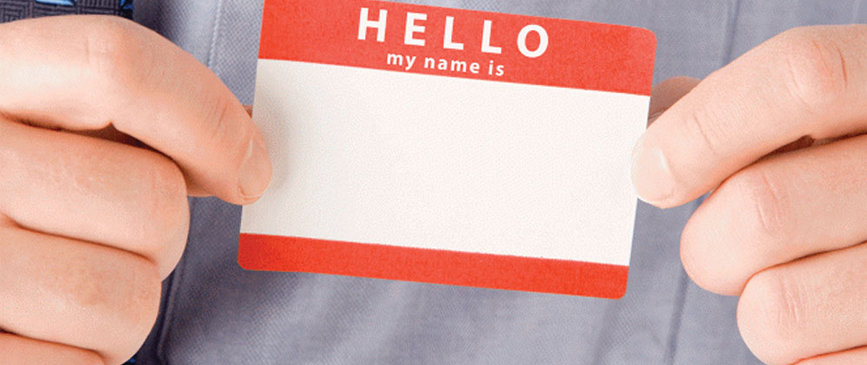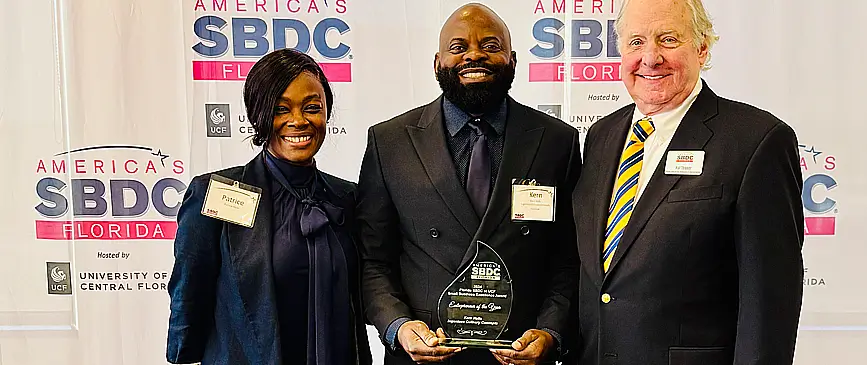Here are some low-cost, high-impact ways to make the school lunchroom experience more engaging for students and in turn increase participation.
As chief innovator of Ingenious Culinary Concepts, a consulting firm specializing in school nutrition programs, Kern Halls has a track record of increasing participation and profitability at schools for which he consults. While his work certainly focuses on food, he’s noticed that student engagement—specifically how staff interacts with student—is often overlooked by foodservice pros in the field.
“A lot of cafeterias don’t have an issue with the food,” Halls says, “but they have an issue with service or marketing.”
Through the course of his work, Halls has identified a few low-cost, high-impact details on the service and marketing side that can improve the school food experience including nametags, table touches and focus groups.
My name is ______
Halls has conducted thousands of hours of student focus groups about their school dining experiences. One question he has for students: “What do you call the person who serves you lunch?”
“They say, ‘We don’t know her name…we call her ‘lunch lady,’ or ‘One of them has a black hairnet and the other one has a green apron,’” Halls says. “We want to say, ‘I’m more than a lunch lady. I’m Sue from Ohio.’”
He’s referring to the conversation-starter nametags he first saw in his former job at Walt Disney World in Orlando, where nametags feature hometowns, part of the meticulous, highly choreographed attention to detail that’s famously found in the House of Mouse.
“It’s all about guest engagement,” Halls says. “At Walt Disney World, those nametags allow guests to say, ‘Oh, you’re from Ohio, too?’”
A simple conversation starter and simply knowing someone else’s name can then lead to more meaningful, memorable interactions.
Whether at the Magic Kingdom or your own lunchroom, this element of knowing the staff as people keeps customers coming back—i.e., participation goes up.
“Engagement increases participation, and the reason I say that is that I’ve seen it. When I was working in a public school district, when we would have nametags, the numbers would go up,” Halls says. “You always hear about ‘mystery meat’ in the cafeteria, but that’s not always the problem. It could be the mystery of not knowing where the food is coming from, who is making it.”
In addition, something that differentiates a manager helps students know who’s who, whether it’s a different color T-shirt, a special nametag or a different color chef’s coat, depending on the budget.
Being in touch
“We talk about leading from behind the serving line,” Halls says, explaining that directors, chefs and staff should all make an effort to come out from behind the line and interact with the ones eating their food.
“That manager, that cashier, can walk into the cafeteria and say, ‘How was your meal today?’” he explains. “Table touching means going to the tables and talking to your students in the lunchroom, or in an outdoor eating area. Just say, ‘How did you like your meal?’ Or, ‘Oh, I see you have an Ohio State Buckeyes sweatshirt on…that’s where I graduated from.’ Just interactions that get more individual.”
Those prompts for conversation can be part of training, Halls says, just as Chick-fil-A trains its workers for famously great customer service.
Table touching can also mean offering to clear a tray or providing some extra napkins. And Halls never overlooks the impact of a friendly smile.
“Before you spend one dollar, I can help you with training: A smile is free; it doesn’t cost a thing,” he says.
Asking for feedback
“Most managers are terrified of meeting with students,” Halls says. “Of all the managers I’ve trained, only a small percent actually want to do focus groups.”
Halls fights that reluctance by conducting live roleplaying focus groups on stage with different employees playing the part of “picky student,” or “indifferent student,” for example.
As for the feedback garnered during focus groups, Hall encourages managers to use it as a tool to improve, not as an insult.
“I say, ‘You can’t take it personally. They’re not going to say, ‘I don’t like your sweater.’ This is your chance to correct your service and make it better,” he says.



